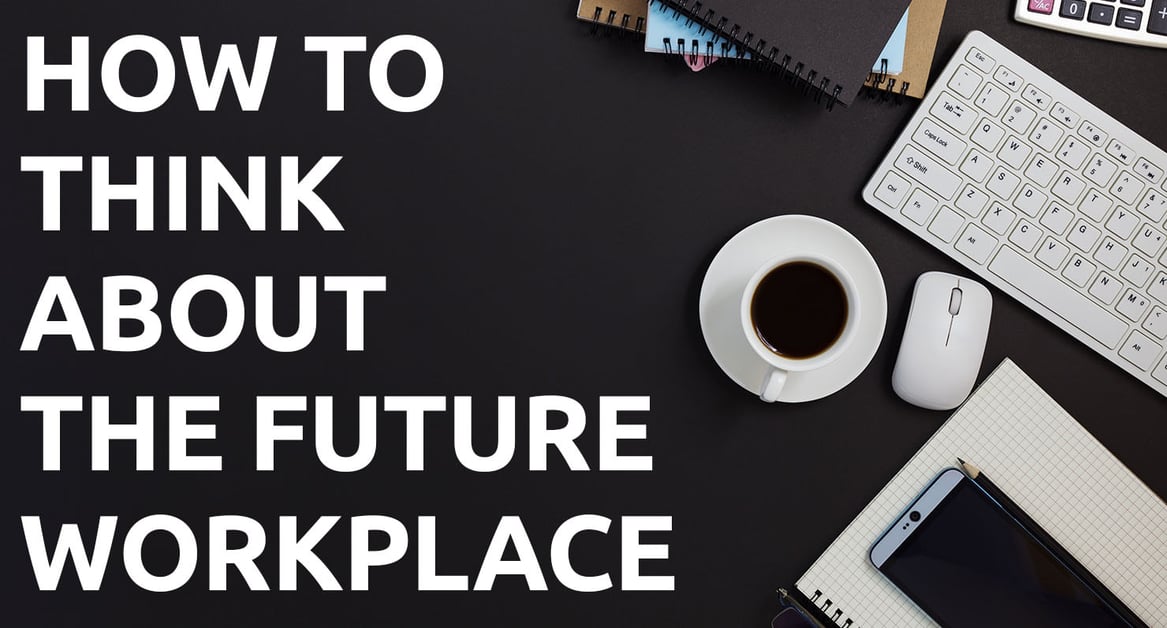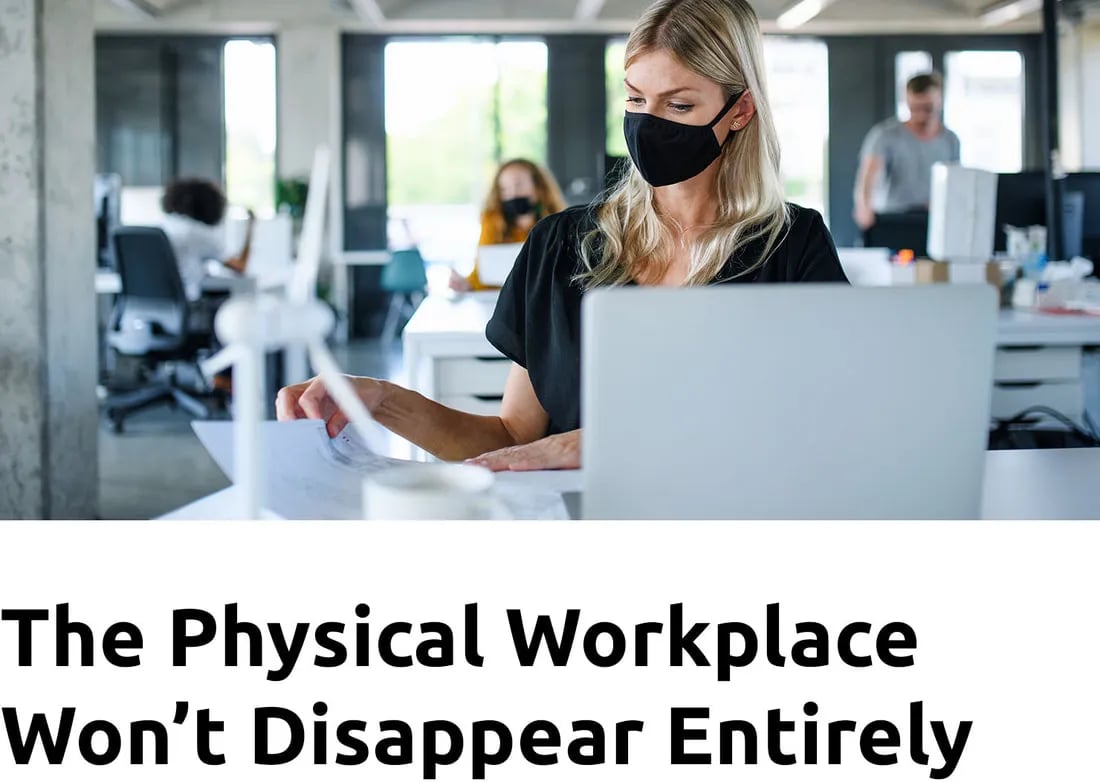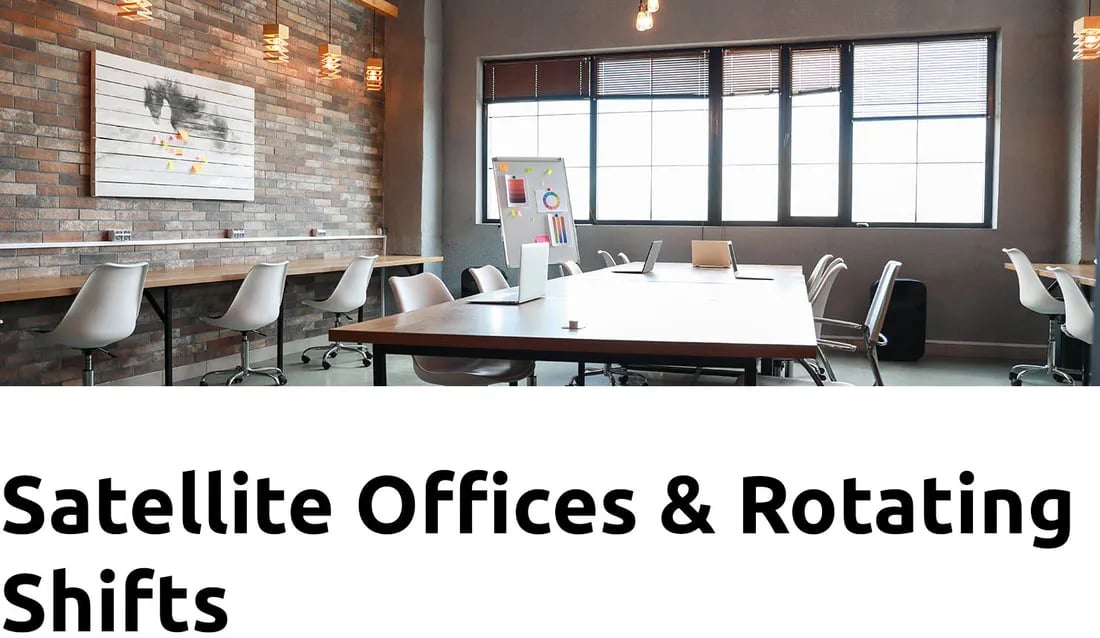
COVID-19 upended so many aspects of our lives, including where we work. Now, one of the biggest questions on many startup leaders’ minds is what to do about their commercial office spaces.
Thanks to advances in teleconferencing technology, many businesses have learned they don’t need to operate out of a building to succeed. Employees are still productive from afar, and many people enjoy the flexibility that comes with working at home.
On the other hand, there are benefits of having your team in one place. It’s easier to build relationships, brainstorm, and communicate. In-person interaction is often less exhausting than sitting on Zoom for hours at a time.
So, how should we think about the future of the workplace?
Should startup leaders plan for remote work...forever?
Or, do we wait for a full return to the office?
These are tricky questions that we’ll try to tackle in this post.

Although several companies have embraced work-from-home arrangements forever (e.g., Twitter and Facebook), it’s highly unlikely that the physical workplace will disappear for several reasons.
First, many people thrive and feed off the energy of being in an office. They enjoy engaging with coworkers and maintaining separation between their working and personal lives. Meetings and brainstorming sessions are also more fluid when people can work off one another’s verbal cues and body language.
Second, we’ve learned that working from home is isolating and lonely for a lot of people. As the novelty of remote work wore off, depression and anxiety increased during quarantine for those who otherwise leaned on the daily social contact provided through their workplaces.
Furthermore, working from home is difficult for parents when children aren’t in school. They either have to hire outside help or enroll kids in extracurricular activities, which can be hard depending on the social distancing mandates of a particular region.
For these reasons, it’s hard to imagine a permanent transition to remote work. Many leaders and workers have come to appreciate what they once had in the physical workplace. Consequently, what we’re likely to see going forward is a hybrid model in which commercial office spaces serve as a central hub for workers to gather when needed.

Companies like WeWork, Industrious, and Knotel set the stage for flexible and shared professional workspaces. Before COVID-19, many startups leased offices from these coworking vendors to take advantage of shared infrastructure, such as high-speed WiFi, bathrooms, and common spaces, without having to invest their own capital.
In a post-COVID world, we’re likely to see many companies downsize their commercial real estate holdings and convert to a coworking-like model where offices are reserved by employees who need to come into work. Workplaces will be more fluid and serve as physical spaces for those who want access on a part-time basis.
Additionally, some predict that companies will swap their expensive, downtown real estate for smaller satellite offices as workforces spread out to the suburbs. Rather than ask all employees to commute in every day, companies can instead provide regional hubs that workers may visit when they want to be in a more professional setting.
The new “normal” will consist of a hybrid of approaches in which workers are given flexibility over where and when they work. In many cases, this will mean smaller commercial footprints and in-office workforce rotations. Fast-growing startups need to keep this in mind as they grow.

Of course, the right answer depends on your specific needs and business. If you value having a globally diverse workforce, you may never need to lease physical office space again. You can embrace remote work and invest in practices that help you ensure success along that path.
If your team values in-person engagement and appreciates having a unique work environment, it may still make sense to lease commercial space. Be mindful of your growth projections and how your employee count needs to ramp over time.
When you become big enough to justify developing or buying your own building, remember that you don’t have to have desks for every individual. Thanks to modern technology and shifting expectations, you can plan to host only a proportion of your company at any given time and implement a reservation system to manage who comes in.
Ultimately, the decision is yours. We trust you’ll make the right one for your startup!
Leave a Comment